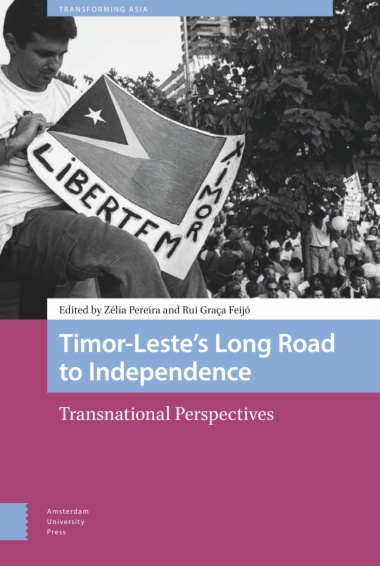From a much neglected Portuguese colony to independence, Timor-Leste travelled a belated, long and troubled journey that included a 24-year Indonesian occupation. A classic process of European decolonization (1974–1975) was followed by a nationalist struggle against “Third World Colonialism” (1975–1999), and a final phase under the direct aegis of the United Nations (1999–2002). More than a direct relation between coloniser and colonised, this turbulent process involved the participation of many different actors scattered around the world. The “Timor Issue” brought to the scene a martyred people’s determination, the diplomacy of several nations (friends or foes), the involvement of the United Nations, and the activism of solidarity networks. This collection adopts a transnational approach that highlights the complexity of Timor-Leste’s road to independence.
- Cover
- Table of Contents
- Acknowledgements
- A Note on the Name of the Country
- Introduction
- Timor-Leste’s Long Road to Independence: Outline for an Analytical Framework
- Zélia Pereira and Rui Graça Feijó
- Part One Before The Portuguese Decolonisation
- 1 While the Winds of Change Gently Blow: Timor-Leste before the Onset of the Portuguese Decolonisation, 1945–1974
- 2 Elusive Colonialism in the Age of Bandung: Portugal, Timor-Leste and Indonesia, c. 1947–1974
- 3 An “Undigestible Lump”: Timor-Leste and the Politics of Self-determination
- Part Two The Portuguese Revolution Arrives In Timor-Leste
- 4 “Nations-of-Intent”: Competing Ideological Views of Nationalism in Timor-Leste, 1974–1999
- 5 Looking for an “Honourable Political Solution”: The Comissão Nacional de Descolonização and the Fate of Timor-Leste, 1974–1976
- 6 Canções Revolucionárias: Rhetoric, Hermeneutic and Ideology Critique
- Martinho G. da Silva Gusmão
- Part Three Reaction To The Indonesian Invasion Of Timor-Leste
- 7 “Damned If You Do, Damned If You Don’t”: Portugal, the UN and the Timor-Leste Issue
- 8 “Reduce the Pressure on the Indonesians”: Australian Timor Policy at the UN, 1975–1982
- 9 “Our Interest Is Minimal, but…”: Britain and the Indonesian Invasion of Timor-Leste, 1975–1976
- Part Four Resisting The Indonesian Annexation Of Timor-Leste
- 10 Return to Fronteira Norte: Rebuilding Resistance in Timor-Leste’s Western Districts, 1990–1995
- 11 “I Follow the Screaming”: The Timorese Catholic Church and the Struggle for Independence
- 12 Walking a Tightrope between the Army and the Church: Jesuit Relief during the Indonesian Occupation of Timor-Leste, 1975–1999
- 13 The Indonesian Genocide in Timor-Leste: Law, Politics, History
- Index
- List of Figures
- Figure 0.1.: Map of Timor-Leste. Courtesy of Frédéric Durand.
- Figure 2.1: General Suharto and his wife, Siti Hartinah, during a bull-fighting demonstration in Jakarta, April 1969, with the Portuguese chargé d’affaires, António Pinto da França (seated at his right), and the latter’s wife, Sofia Pinto da França (sitti
- Figure 10.1.: Map of FRETILIN sectors, 1975–1979. Courtesy of Frédéric Durand. Based on data provided by author.
- Figure 10.2.: Map of resistance regions, 1981–1999. Courtesy of Frédéric Durand. Based on data provided by author.
- Figure 10.3: Konis Santana and Sahe, 1st Commander of the Southern Detachment, reviewing FALINTIL troops in Cailaco. Timorese Resistance Archive – AMRT, 09526.002.100

